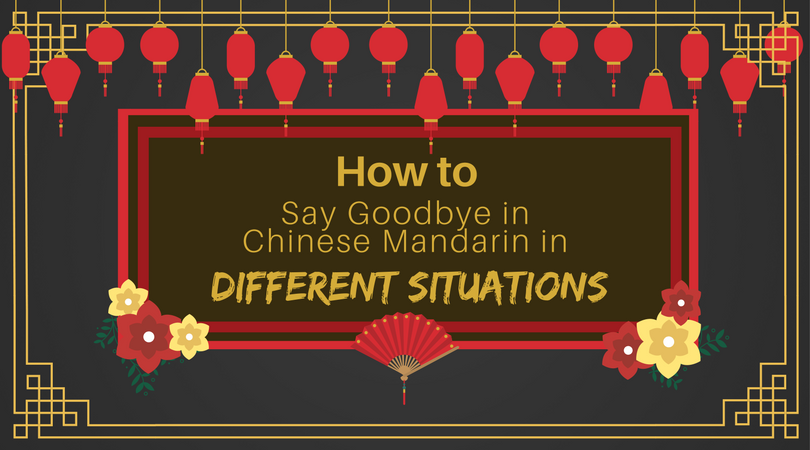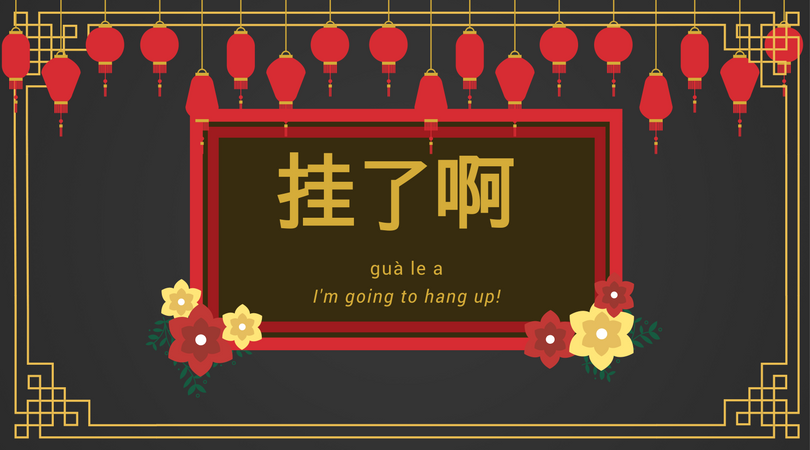Greeting one another is one of the most important components of human communication. Without this, where would we start or end? It’s obvious that we need ways to greet each other to recognise each other’s presence, address each other at the start and end of conversation, to show our intentions and to show our willingness to see each other again.
Hello and goodbye are incredibly important in all languages but instead of just those two basic words, there are often many various choices for their usage and each has a distinct meaning. In some languages, the use of goodbye varies a lot based on the context of the situation. Even in English, ‘goodbye’ is pretty formal, perhaps so formal that it could be construed as rude or dismissive. A more simple ‘see ya’, though, is the opposite – very informal and quick and it would be rude if not used appropriately.
In the Chinese language, this same dilemma exists for those who are new to the language but the informal/formal aspect is perhaps even greater. Saying goodbye properly for each situation is imperative to speaking Chinese well. Knowing how to say goodbye in Chinese Mandarin correctly equips you with the right things to say in a variety of scenarios. With just the bare bones ‘good bye’, you’re not going to be able to say goodbye the proper way in many, many scenarios and you might come across as awkward, naive or even rude. Of course, not much can go wrong with a normal goodbye but the more phrases you know, the better!
How to say goodbye in Chinese Mandarin casually or informally
In day to day speaking, these are the kind of phrases you can look to use to say goodbye in Chinese. They’re simple and easy to remember and most of them are snappy and friendly to speak. Saying goodbye informally in Chinese is fun and easy – if it’s someone you have met a few times and know relatively well, friends, friendly figures or familiar individuals then try and use one of these phrases!
再见 [zài jiàn]
This means quite simply “See you again”. It’s amongst the most common ways of saying bye or goodbye in Chinese and it’ll suffice for the majority of goodbyes that you might encounter.
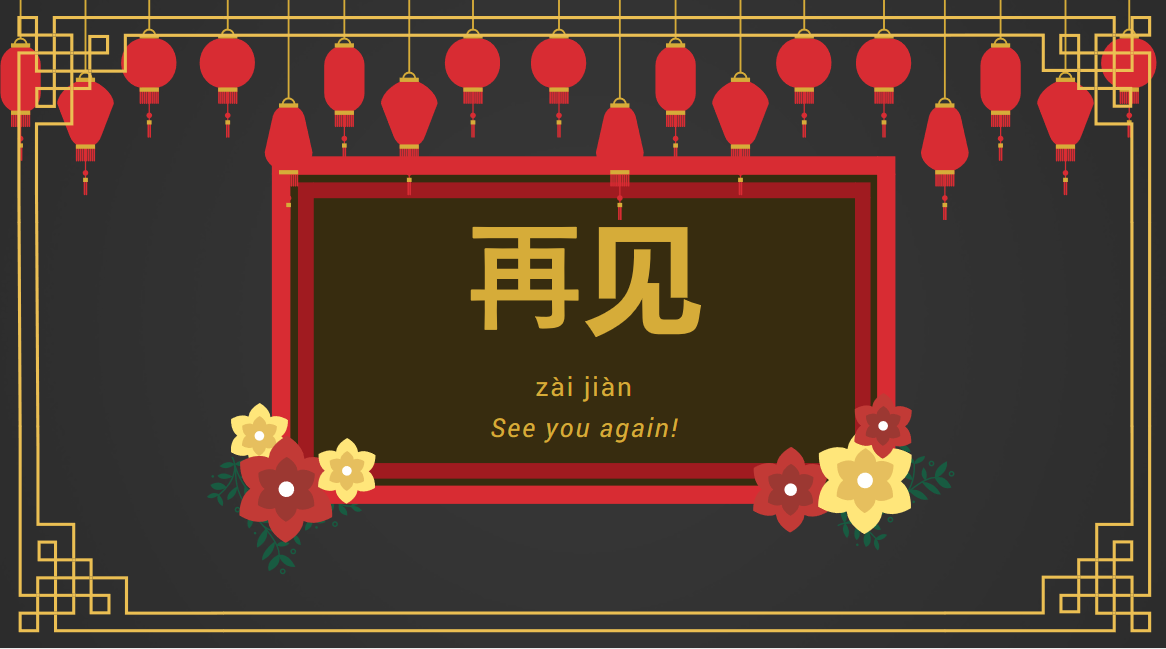
拜拜 [bài bài]
Adopted from the English ‘bye bye’, 拜拜 is an informal and casual way of saying goodbye in Chinese.
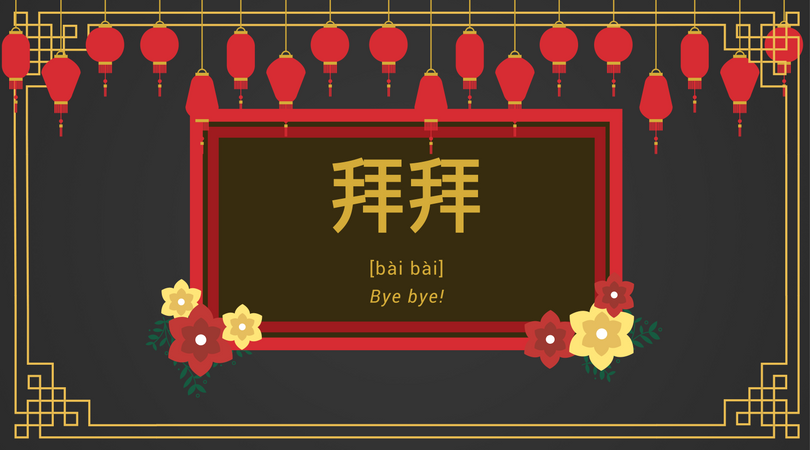
(有空)再会 [(yǒu kòng) zàihuì]
This phrase means “meet again” or “Until we meet again”, and is suitable for slightly more sincere goodbye.
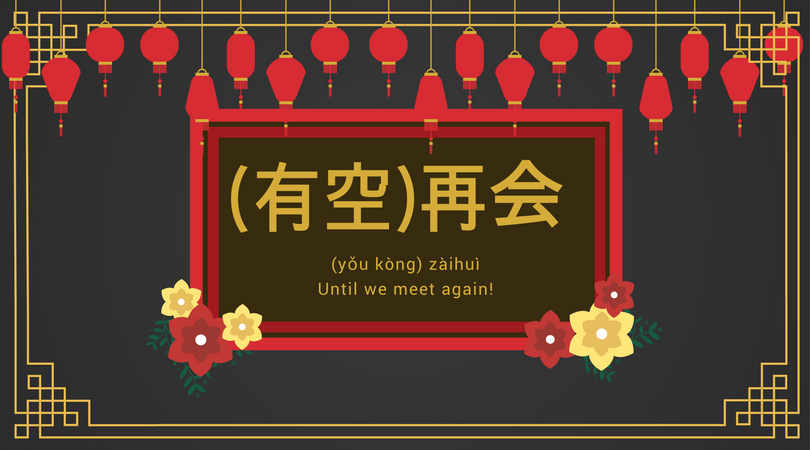
再联系 [zài liánxì]
This is slightly different. 再 means “again” whilst 联系 means “contact”. Therefore, this means “lets make contact again”, which is quite a nice way of saying goodbye, showing intent to see someone again soon.
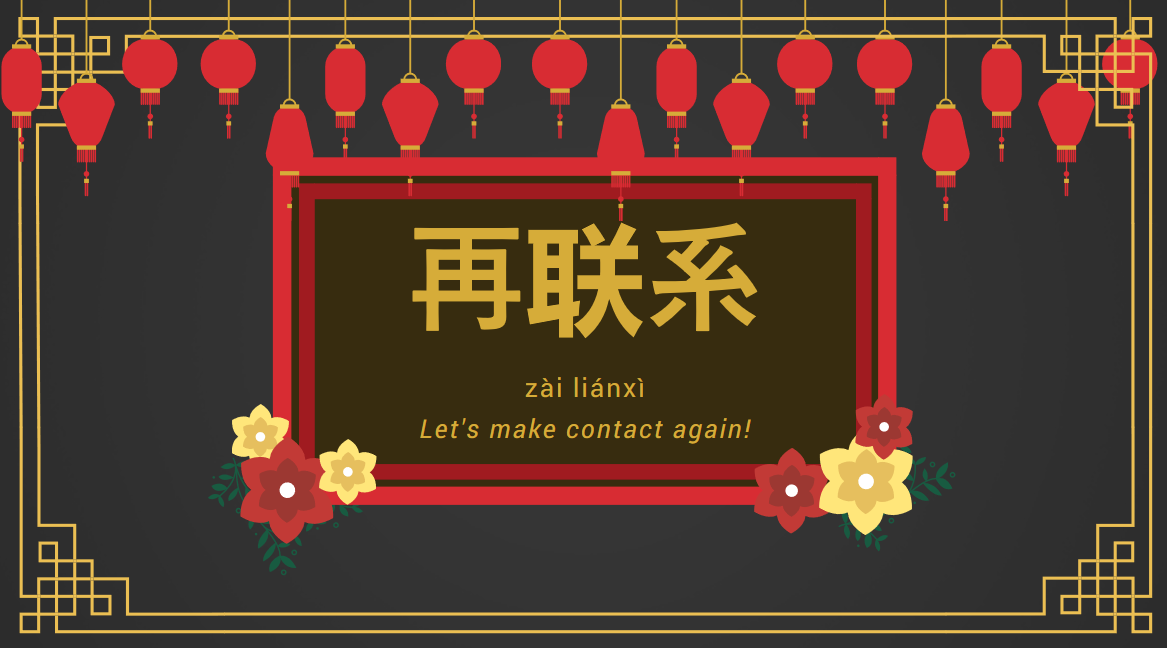
一会儿见 [yī huǐ er jiàn]
This means either “see you later” or “see you in a while”, which is useful if you know that you’ll be seeing someone soon.

回头见 [huí tóu jiàn]
This 回头 means “to turn your head around”, which figuratively means “later”. This is another way of saying see you later/in a while, one which uses a great figure of Chinese speech.
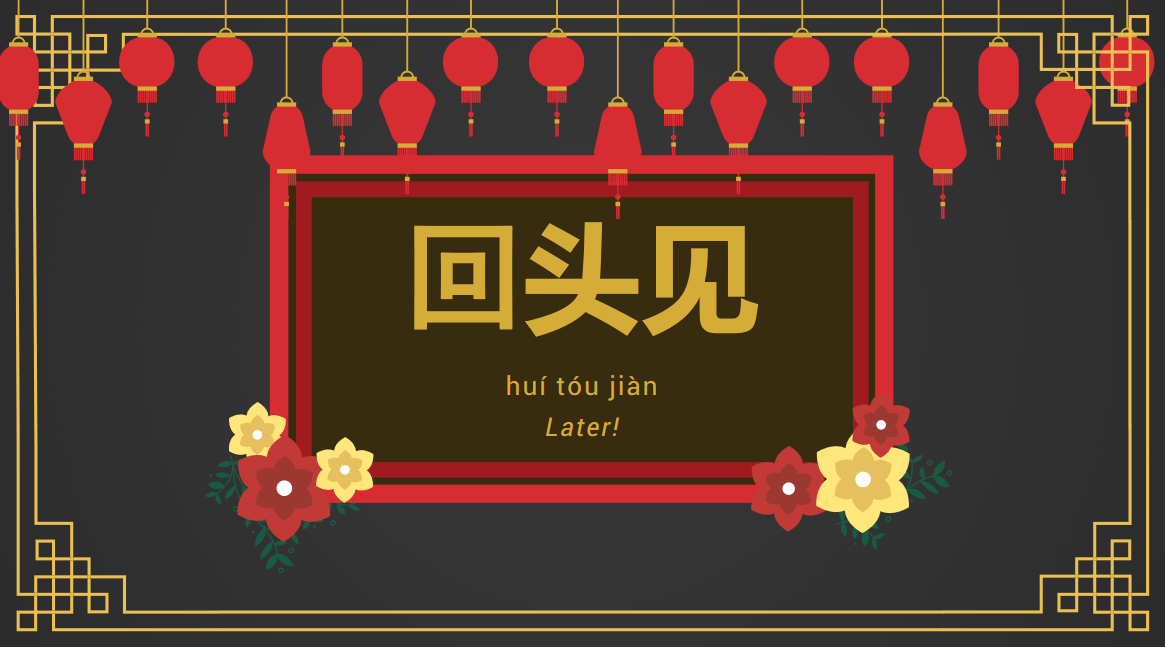
明天见 [míng tiān jiàn]
A useful one, this means “see you tomorrow.” It’s an easily spoken phrase and is good to use when you know you’ll see someone again the next day.
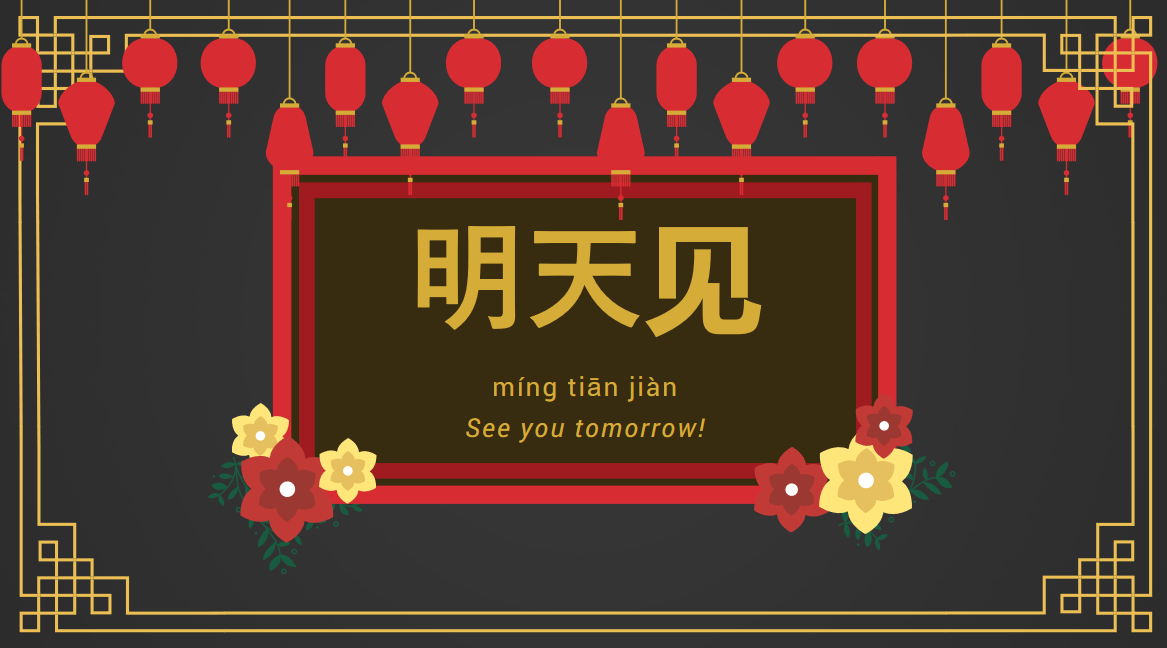
周一见 [zhōu yī jiàn]
When it’s the weekend, you might use this phrase to say goodbye as it means ‘see you on Monday’. Monday can be swapped out for almost any day or date, following this simple pattern: [Specific Date] + 见.
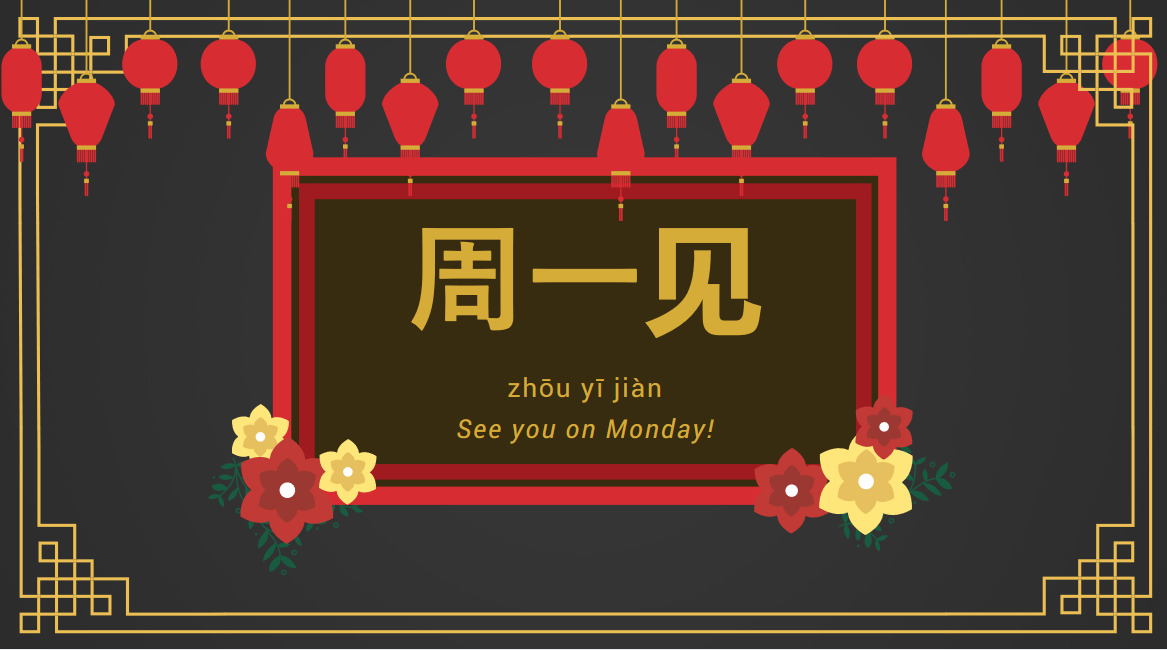
挂了啊 [guà le a]
Ending a call in Chinese can be tricky. This means quite simply ‘i’m going to hang up’ but it contains a particle word to contribute some emotion to the phrase. It can be shortened easily to 挂了, guà le. Informal phone calls in Chinese are often ended this way, it’s simple, just ‘I’m hanging up!’ – ‘Guà le a!’
How to say goodbye in Chinese Mandarin formally and politely
Sometimes, slightly more formal phrases will be required. Perhaps these will be used in business situations, when speaking to superiors, your elders or to distinguished individuals. To say goodbye in Chinese Mandarin formally is challenging but whilst formal language use is still very important in Chinese, scenarios where you’d really insult someone using an informal ‘goodbye’ opposed to one of these are lesser now than ever.
However, it’s always better to err on the side of caution. So, if in doubt and you know you’re in a sincere situation, perhaps at work, try to use one of these ways to say goodbye in Chinese Mandarin formally if possible.
告辞 [gào cí]
This is a formal announcement of departure, meaning quite literally “I’m leaving.”
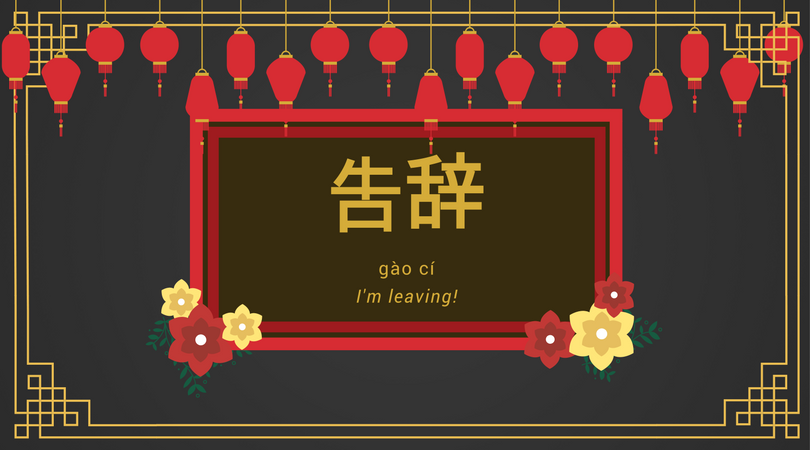
失陪 [shī péi]
Another formal phrase, this means “excuse me, but I must be leaving now.” A closely related phrase, 失陪一下 means “Excuse me, but I must leave you for a while.” You may use this if you needed to excuse yourself from a meeting to go to the toilet, for example.
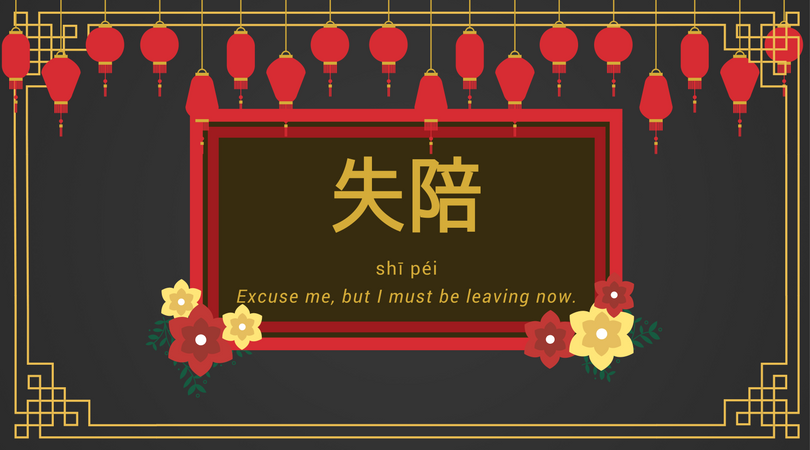
后会有期 [hòu huì yǒu qī]
We say farewell in scenarios where we’re unsure when we’ll see someone again. It’s more dramatic and sincere than ‘goodbye’. It’s a bit of a movie phrase, where lovers may say hòu huì yǒu qī when one of them is making a wistful departure.
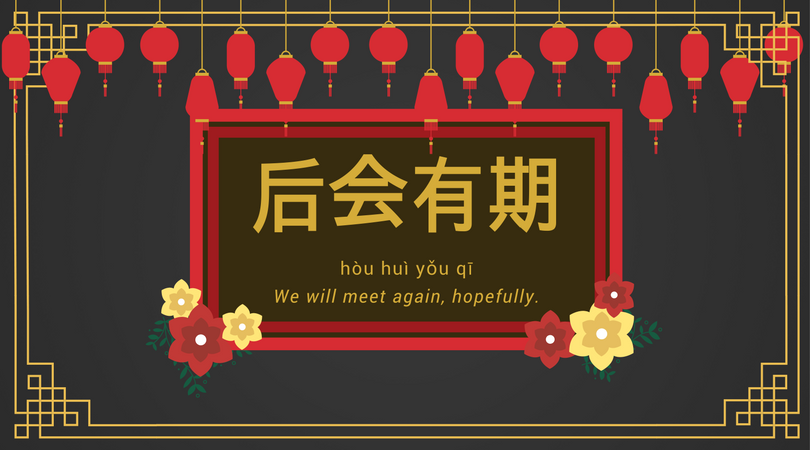
保重 [bǎo zhòng]
This means ‘take care’ and is an important phrase to use before someone makes a journey or is otherwise going off for a while. A lovely Mandarin phrase, 保重 together with 一路顺风 ‘yī lù shùn fēng’ means “May the wind be with you”.Another less formal take on this is 慢走, mànzǒu, meaning ‘take care!’ 走 literally means ‘to walk slowly’ and is used perhaps when your guests are walking out the door and you don’t want them to go.
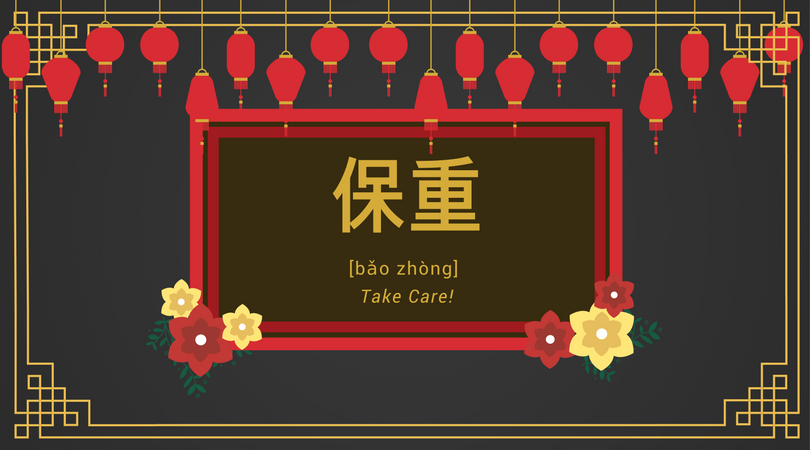
留步 (liú bù)
This means ‘I’ll show myself out’. In most cultures, you should see people out of the door. In China, this is very important, especially in formal situations. The more effort you put into this, the better it reflects on you. Showing someone a door would be the bare minimum but travelling with them to a main exit, to their taxi, or even to do their door would be better. This is called “sòng” (送), so if you want to exclude yourself from these proceedings and make your own way you can say “liú bù” – ‘‘i’ll show myself out’.
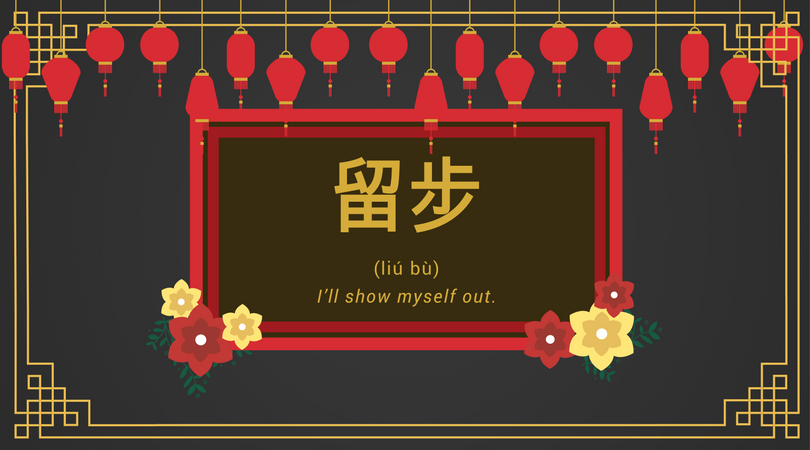
晚安 [Wǎn’ān!]
Last but certainly not least, this means good night!
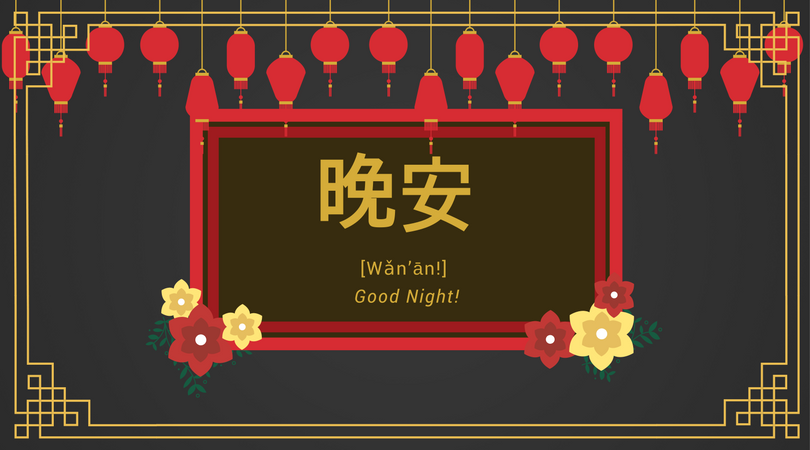
There are many ways to say goodbye in Chinese Mandarin and it’s one of those short, simple and personal phrases that can really reflect on the conversation before. If you strike up a good conversation and end it on a quick note like ‘bye bye’ then that isn’t as effective as telling someone that you’d like to see them again. Using a simple ‘goodbye’ in an interview when you really need the toilet might look a bit strange in comparison to excusing yourself for a few minutes!

